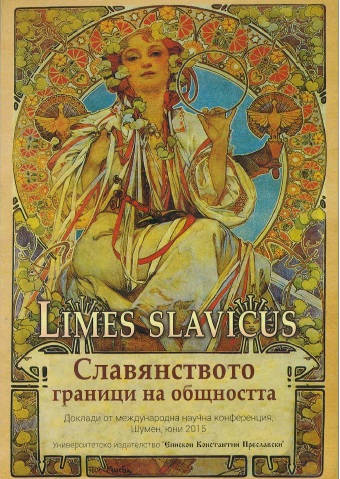Стратегия псевдо-непринятия комплимента в русской и украинской лингвокультурах
A strategy of the “pseudo non-acceptance” in the Russian and Ukrainian compliment responses
Author(s): Natalia KravchenkoSubject(s): Language and Literature Studies, Theoretical Linguistics, Semantics
Published by: Шуменски университет »Епископ Константин Преславски«
Keywords: compliment response; non-acceptance strategy; pragmatic; conversationalanalytical; ethnolinguistic; concept
Summary/Abstract: This paper examines the most common compliment responses given in informal situations. The special attention is paid to the strategy of the “pseudo non-acceptance exaggerating a complimented characteristic” viewed as an ethno- specific communicative convention in the Russian and Ukrainian linguocultures. The study integrates a conversation analytic methodology with pragmatic and cognitive approaches to a dialogical discourse analysis. The manipulator aspect of the revealed strategy is related to semantic moves of the «apparent refutation” and “apparent justification”, implementing a logical model of “agreement under the guise of rejection”. In the context of the Grice’s theory the “pseudo non-acceptance” strategy flouts all Cooperative Maxims causing an implicature of agreement and intensification of the complimented characteristic. In an aspect of the “face and politeness theory” the analyzed reaction expresses a negative politeness strategy and the Maxim of modesty implicitly violated by pseudo nature of non-acceptance. In ethnolinguistic conceptual perspective a non-acceptance strategy is explained by the ambivalence of the concept of modesty implicating a dichotomous reaction to the compliment: the propositional level explicates a meaning of “non¬acceptance”, supporting the maxim of modesty, and the illocutionary level provides an acceptance strategy while intensifying a positive characteristic. In a logical aspect the analyzed strategy is viewed as an antiphrasis implicature with implicit meaning (intensified agreement) directly opposed to an explicated propositional disagreement. The article also explores the logical-semantic, logical and conversational- analytical parameters of the compliment’s “pseudo non-acceptance” strategy.
Journal: Limes Slavicus
- Issue Year: 2016
- Issue No: 1
- Page Range: 131-137
- Page Count: 7
- Language: Russian

